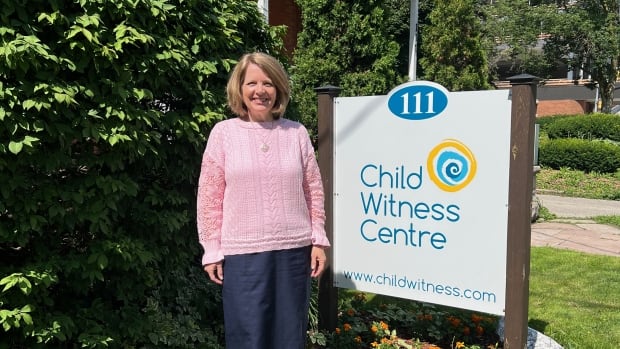
For the first time since its launch in 1981, the Child Witness Centre (CWC) has a waitlist for the supports it offers.
The group helps young people who are victims of abuse and violence navigate the criminal justice system. The issue is something that adequate funding could remedy, executive director Robin Heald said.
CWC supports young people in the region through the investigation process and helps them navigate the court system in relation to a crime they’ve experienced or witnessed. Heald said it could include physical or sexual abuse, child exploitation, neglect, peer-to-peer assault or being a domestic violence witness.
“I think it’s important to note that over 17 children and youth become our client every week,” said Heald. “And of those, 11 [clients] a week end up moving forward to charges being laid where a child or youth needs to be served throughout the court process.”
The reason for the waitlist? Heald said a lot more young people are coming forward, which could be in part because of the #MeToo movement. That, coupled with the population growth in Wellington County and Waterloo region, and the backlog from COVID-19, has upped the demand of the CWC’s services. It’s also not seeing as many donations.
Heald said the waitlist is 153 names long and it costs about $1,000 to help each child.
She explained that the CWC get 30 per cent of its funding from the three levels of government, and depend on the rest from grants, fundraising and donations from the community.
The consequences
A waitlist means young people may have to go through an investigation, or navigate the court system, on their own and this can have consequences, Heald said.
“The unmet need for the child can lead to long-term impact,” she said.
“If we look at long-term studies of people that are not supported through victim services, they have a much higher chance of suicide, and they have a much higher chance of housing insecurities, homelessness, and mental health issues.”
Landon Jennings, now 29, was first put in contact with the CWC by police when she was 13. Back then she was a lead witness in an abuse case.
After she “overcame some trauma that [she] had originally experienced” from that period years later, she returned to volunteer with the CWC.
She said both periods in her life were the “darkest places that I’ve ever been in.”
“I found for myself that the Child Witness Centre was kind of a safe place for me because it was a place where I finally felt like once you stepped into those doors, the case workers that were there, they’re not judging you, they’re not making you feel awful or guilty for what happened,” Jennings told CBC News.
“They’re making you feel like it’s normal, all the things you’re experiencing and all the things that you’re going through.”
The CWC’s support made a difficult process a lot more manageable for Jennings.
“For me at the time … I know that the people who were supporting me, my family that was supporting me, didn’t really know how to help and didn’t have all the right answers too because no one had ever experienced this before,” she said.
“So I am very fortunate that I was the one that was able to get the support when I needed it because I can say I had a ton of questions about what I was going to feel like, what it was going to look like, what was going to happen if the person who harmed us was there.”
CWC said it’s� aiming to raise $2.5 million in the next five years.
This post was originally published on this site be sure to check out more of their content.






